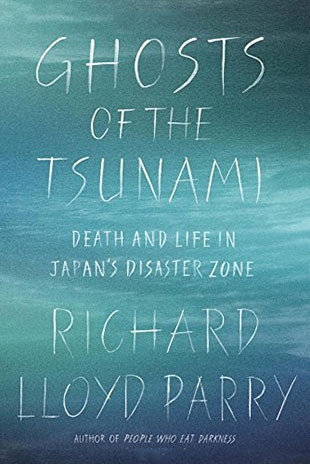In his spiritually sensitive, honest, and compassionate account of the March 11, 2001, tsunami and its aftermath in Japan, Richard Lloyd Parry, the Japan correspondent for The Times (London) does an extraordinary job interviewing survivors, uncovering details of the tragedy, and exploring the extreme grief and generosity afoot in the country after the most intense and debilitating disaster in Japan since the atomic bombing of Nagasaki.
Parry was in his office in Tokyo when the biggest quake ever to hit the country occurred. The next morning, he headed off to the northeast coast of Japan where 18,500 people had lost their lives. One of the most vivid stories turned out to be the deaths in an Okawa primary school where 74 of its 108 students and 10 of its 11 teachers either drowned or were suffocated in the mud. Parry encounters the immense grief of parents who lost their young children. He also is taken aback by the anger which fuels a lawsuit against the city and prefectural government. The plaintiffs believed that the school's staff waited too long instead of immediately taking the children to higher ground.
Certainly the most bizarre and fascinating expression of grief Parry describes is the cultural phenomenon of people seeing ghosts in the wake of the catastrophe. He explains the importance of household altars in most homes and the ritual of welcoming home the ancestors' spirits at the summer Festival of the Dead. In return for the reverent offerings of food, drink, and prayers, the dead bestow "good fortune on the living." This interchange between ancestors and their descendants was disrupted by the tsunami which destroyed the family altars and set free "hungry ghosts," those who died violently or prematurely in the disaster.
Parry poses three questions:
"At a stroke, thousands of spirits had passed from life to death; countless others were cut loose from their moorings in the afterlife. How could they all be cared for? Who was to honor the compact between the living and the dead? In such circumstances, how could there fail to be a swarm of ghosts? "
Multiple sightings of ghosts were made in areas hardest hit by the tsunami. Buddhist, Shinto, and Christian priests were called upon to exorcise these unhappy souls. It is this kind of attention to grief, loss, and cultural traditions that make Parry's book such a poignant read!
